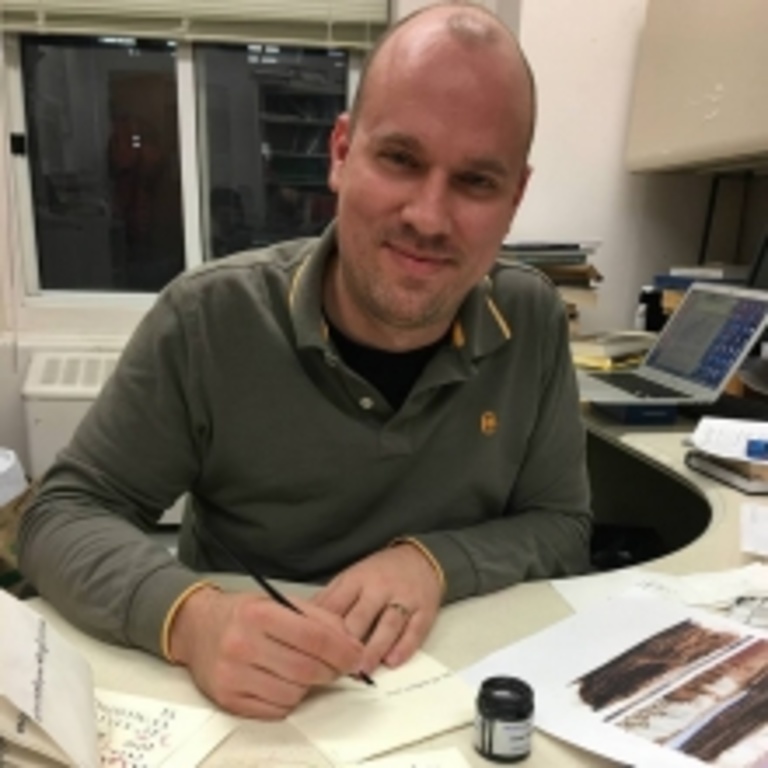Paul Dilley
Paul Dilley (PhD Yale, 2008) is the Erling B. “Jack” Holtsmark Associate Professor in the Classics, and DEO of the Department of Religious Studies. He specializes in the religions of Late Antiquity, particularly early Christianity, with an approach that integrates cultural history, philology, cognitive studies, and the digital humanities. He is currently working on two book projects, Writings of Light: Early Manichaean Texts as World Literature, and Hagiography and Graeco-Roman Theater: Mime, Tragicomedy, and the Therapy of Emotions, and is PI of the NEH grant “Communicating Revealed Texts: Best Practices for Born-Digital Editions using Enhanced Images.” Dilley has received multiple grants and fellowships, including from the Alexander von Humboldt, Citizens and Scholars (Newcombe), Jacob Javits, Loeb Classical Library, and Mellon Foundations, as well as the American Research Center in Egypt and Dumbarton Oaks. He has been a member of the Institute for Advanced Study, School of Historical Studies, and is a senior fellow of the Mellon Society of Fellows in Critical Bibliography. He has lectured and given workshops in Europe, the Middle East, Asia, Australia, and North America. At the University of Iowa, he teaches introductory lectures on the Abrahamic religions and ancient Mediterranean religions, as well as a variety of more specialized undergraduate courses and graduate seminars in Classics and Religious Studies.
Professor Dilley’s first book, Monasteries and the Care of Souls in Late Antique Christianity: Cognition and Discipline (Cambridge University Press, 2017), explores the innovative practices for the training of thoughts and emotion, both individual and group, developed within early Christian ascetic movements, from the perspective of cognitive anthropology. His follow-up project explores a group of Late Antique biographies of ascetic saints that he connects with Graeco-Roman theater, as well as their implicit therapeutics of laughter and the emotions. He has also published numerous articles in journals and peer-reviewed volumes on ancient asceticism and monasticism, the development of orthodoxy and heresy, apocryphal literature, and the canon.
Professor Dilley is co-editor with Iain Gardner and Jason BeDuhn of the "Dublin Kephalaia Codex," a fifth-century Coptic manuscript of 360 surviving pages, containing previously unknown discourses of Mani, the Christian arch-heretic. The editorial process has involved extensive use of multispectral imaging, to recover damaged text, with generous support from the Australian Research Council, the National Endowment for the Humanities, and the manuscript lab at the Centre for Comparative Manuscript Cultures, University of Hamburg. A collection of preliminary studies on the manuscript’s exciting new contents, Mani at the Court of the Persian Kings, appeared in the Nag Hammadi and Manichaean Studies series (Brill, 2014); and the first of four fascicles of the critical edition itself appeared in the same series in 2018. Professor Dilley’s research in Manichaeism is part of a broader interest in the various modes of large-scale and long-term interaction between ancient religious traditions. He is an organizer (with co-PIs Timothy Barrett and Katherine Tachau) of the 2016-2017 Mellon Sawyer Seminar at the University of Iowa, “Cultural and Textual Exchanges: The Manuscript Across Pre-Modern Eurasia”. More recently, his research on the X-Ray tomography of ancient manuscripts, with computer scientist Brent Seales, has been featured in the New York Times, Newsweek, and Iowa Public Radio. He was co-curator of The Mystery of Mani,” Special Exhibition, The Chester Beatty Library, Dublin, June 21, 2019-January 19, 2020.
Professor Dilley is also a digital humanist, conducting research in text analysis, including “distant reading,” a strategy to uncover clues for interpreting large literary corpora through algorithmic analysis. He explores basic issues of Greek and Latin text analysis in his article “Digital Philology between Alexandria and Babel,” in Ancient Worlds in a Digital Culture (Brill, 2016), co-edited with Claire Clivaz and David Hamidovic, the first volume of the series Digital Biblical Studies, for which he is a member of the editorial board. With Sarah Bond and Ryan Horn, he edited the open access volume Linked Open Data for the Ancient Mediterranean: Structures, Practices, Prospects, ISAW Papers 20 (2021). He has served as chair of the SBL’s Digital Humanities in Biblical, Early Jewish and Christian Studies Program Unit.
Professor Dilley has recently developed several new undergraduate courses: "Big Ideas: Information, Society and Culture," co-taught with Fred Boehmke, introduces basic concepts in digital humanities and quantitative social sciences, and satisfies the General Education QFR requirement; as well as an innovative "Global Manuscript Cultures" course, co-taught with Kendra Strand, which introduces undergraduates to the global history of the book.
Pronouns
- he, him, his
Research interests
- Ancient Mediterranean religions
- Late Antiquity
- Early Christianity
Select one of the Dr. Dilley's following books to be taken to the publisher's page.
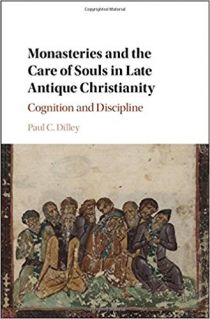
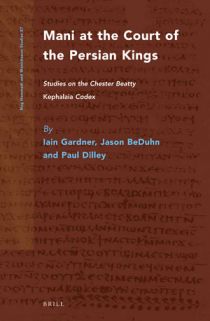
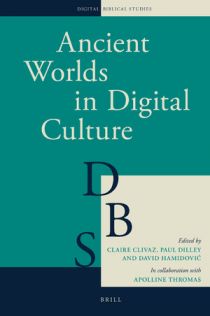
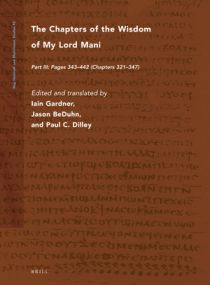
Selected publications
For complete list, please see Professor Dilley's CV:
- “Christus Saltans as Dionysos and David: The Dance of the Savior in its Late- Antique Cultural Context,” Apocrypha 24 (2013): 237-254.
- "Religious Intercrossing in Late-Antique Eurasia: Fragmentation, Corruption, and Written Canons," in Journal of World History (Accepted).
- "The Chester Beatty Kephalaia Project" (with Iain Gardner and Jason BeDuhn), in Proceedings of the Seventh Conference of the International Association of Manichaean Studies, ed. Siegfried Richter (Leiden: Brill) (Accepted)
- "Letter to a Holy Man with Prayer," in Koptische dokumentarische und literarische Texts, ed. Monika Hasitzka, Corpus Papyrorum Raineri 31 (Berlin: DeGruyter, 2011), 30-35.
- "The Invention of Christian Tradition: Apocrypha, Imperial Policy, and Anti-Jewish Propaganda," in Greek, Roman, and Byzantine Studies 50.4 (2010): 586-614.
- "Christian Icon Practice in Apocryphal Literature: Consecration and the Conversion of Synagogues into Churches," in Journal of Roman Archaeology 23 (2010): 285-302.
- "Dipinti in Late Antiquity and Shenoute's Monastic Federation: Text and Image in the Paintings of the Red Monastery," in Zeitschrift fur Papyrologie und Epigraphik 165 (2008): 1-18.
Courses taught
- RELS:1050 Big Ideas: Information, Society, Culture
- RELS:1001 Judaism, Christianity, and Islam
- RELS:2182 (CLSA:2482) Ancient Mediterranean Religions
- RELS:3243 (CLSA:3443) Pagans & Christians: The Early Church
- RELS:4950 Senior Majors Seminar
- RELS:1000 First Year Seminar: Games, Chance, and Gambling: Backgammon
- ASIA:2127 Global Manuscript Cultures
Awards, honors, and grants
- Co-PI, Mellon-Sawyer Seminar, 2016-2017: “Cultural and Textual Exchanges: The Manuscript across Pre-Modern Eurasia” (with Katherine Tachau and Timothy Barrett)
- Mellon Fellowship of Scholars in Critical Bibliography (2015-2017)
- Obermann Interdisciplinary Research Grant (May 2015; with Sarah Bond and Ryan Horne) For development of the Terra Biblica and Big Ancient Mediterranean Digital Humanities Projects
- University of Iowa Internal Funding Initiative (2014-2015; PI)
- University of Iowa Digital Studio for Public Humanities Grant (2012)
- University of Iowa Old Gold Summer Fellowship (2012)
- Alexander von Humboldt Foundation, German Chancellor Fellowship (June 2011; Summer 2006; 2000-2001)
- Ken Forster Memorial Award for Excellence in Research and Teaching, Penn State University (2010)
- American Philosophical Society Franklin Grant (Summer 2009)
- American Research Center in Egypt (ARCE) Fellowship (2007-2008)
- Charlotte W. Newcombe Doctoral Dissertation Fellowship, Woodrow Wilson National Fellowship Foundation (2006-2007)
- Jacob K. Javits Fellowship in the Humanities (2002-2006)
